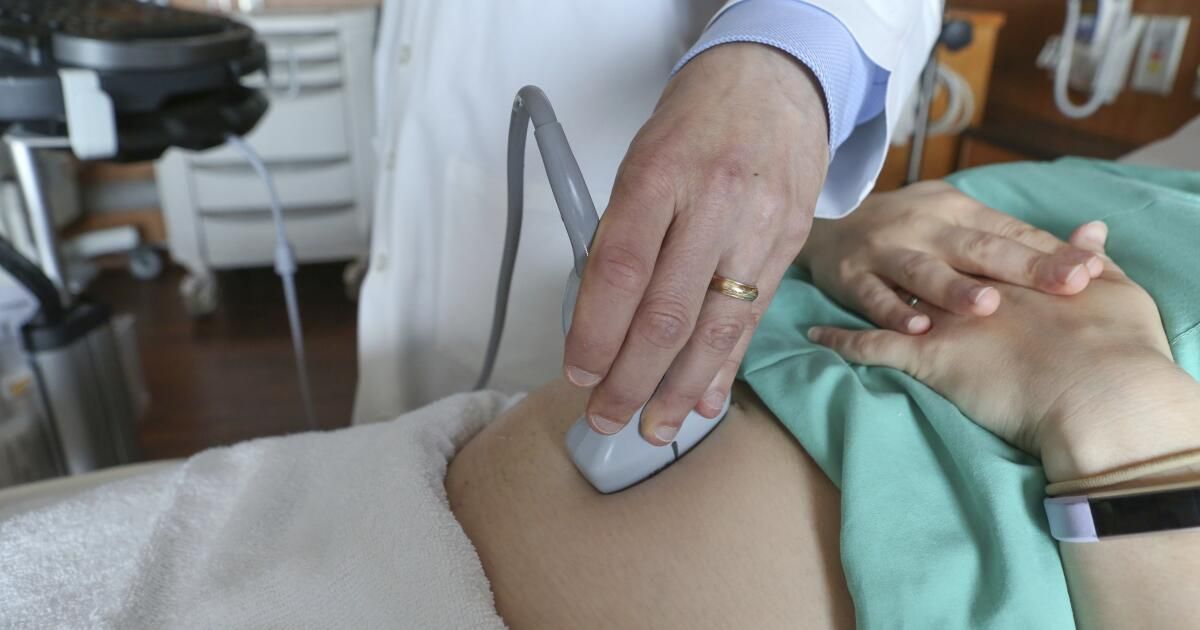Last week, Keck Medicine of USC announced the Closing of obstetric services at USC Verdugo Hills Hospital On November 20, doctors cited a 40% decline in births over the past decade in “our community” and the resulting financial effect on the hospital as reasons for the decision. While this justification seems reasonable at first glance, it hides a disturbing trend with significant implications for maternal health.
The closure of labor and delivery units in hospitals is a nationwide trend, resulting in “Maternity care deserts.”The closures primarily affect patients with Medicaid insurance, which pays more than 40% of deliveries In the United States, and through Medi-Cal, more than 50% of deliveries In California, unequal access to obstetric care contributes to the shamefully high maternal mortality rate which, at 22 maternal deaths per 100,000 live births in 2022, was double or triple the rate of similar countries.
Obstetric care is different from many other types of medical care because of its unpredictability. Babies don't arrive on anyone's schedule, and activity in delivery units can increase or decrease accordingly. In order for doctors to safely care for laboring mothers and their babies, hospitals must be staffed for the possibility of a sudden surge of patients requiring emergency care.
The modern fee-for-service healthcare model, which forces hospitals to maximize efficiency and reduce staffing, views the resilience needed to deliver babies as a drag on their bottom line. In this model, hospitals must fund round-the-clock delivery capacity, but they are only reimbursed when their facilities and staff are up and running. So if not enough births are taking place, expenses outstrip reimbursement. This leads hospitals to get out of the delivery business altogether.
California has experienced a higher rate of obstetric unit closures than other states, and it continues to accelerate. More than 46 labor and delivery departments closed in the state between 2012 and 2023, with 60% occurring in the past three years. These closures are not limited to sparsely populated rural areas: 17 were within Los Angeles Countywhich resulted in a Local rate of closures far outpacing declining birth rateThis year, five more California hospitals have stopped providing obstetric care, and USC Verdugo Hills Hospital will become the fifth in Los Angeles County to close labor and delivery rooms in a two-year period.
Health care and benefit managers talk about expanding and consolidating obstetric services, concentrating them in fewer hospitals so that there are enough births to cover the costs of staying open. This will work only if we assume that market forces will balance supply and demand so that enough labor and delivery departments remain open to meet demand. But those forces work only if prices are dynamic and responsive to changes in supply. Insurance providers, especially Medicaid and Medi-Cal, have not demonstrated this kind of flexibility.
Medi-Cal, the Medicaid program in California, has reimbursement rates for obstetric care that are The fifth lowest in the countryIn our state, even labor and delivery departments that serve primarily Medicaid patients are not breaking even. Martin Luther King Jr. Community Hospital in South Los Angeles It is struggling to stay open Even as obstetric patient volumes have increased, other labor and delivery units in Los Angeles have closed. This shows that the amount paid by Medi-Cal is below the market cost of providing obstetric care. This shortfall is the basis for the closures in California.
There are at least two paths to follow.
The first is to increase Medi-Cal reimbursement for every patient born. The second would require regulating and directly subsidizing the maintenance of labor and delivery units, just as the state does with emergency rooms. Either strategy will be expensive, because providing safe, modern, evidence-based obstetric care is costly.
Reproductive freedom is at the forefront of the news during this election campaign. It should include reasonable, safe, and reliable access to labor and delivery services.
Anna Reinert is an associate professor of clinical obstetrics and gynecology at the Keck School of Medicine of USC.












